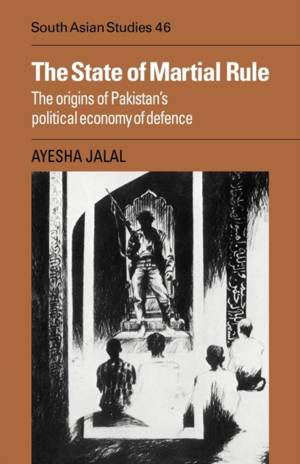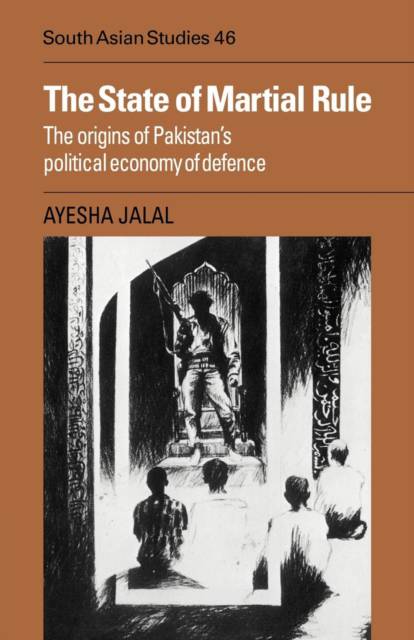
- Afhalen na 1 uur in een winkel met voorraad
- Gratis thuislevering in België vanaf € 30
- Ruim aanbod met 7 miljoen producten
- Afhalen na 1 uur in een winkel met voorraad
- Gratis thuislevering in België vanaf € 30
- Ruim aanbod met 7 miljoen producten
Zoeken
€ 74,95
+ 149 punten
Uitvoering
Omschrijving
When the British dismantled their Raj in 1947 India, as the 'successor' state, inherited the colonial unitary central apparatus whereas Pakistan, as the 'seceding' state, had no semblance of a central government. In The State of Martial Rule Ayesha Jalal analyses the dialectic between state construction and political processes in Pakistan in the first decade of the country's independence and convincingly demonstrates how the imperatives of the international system in the 'cold war' era combined with regional and domestic factors to mould the structure of the Pakistani state. The study concludes by placing the state and political developments in Pakistan since 1958 within a conceptual framework. It will be read by historians of South Asia and by students and specialists of comparative politics and political economy.
Specificaties
Betrokkenen
- Auteur(s):
- Uitgeverij:
Inhoud
- Aantal bladzijden:
- 380
- Taal:
- Engels
- Reeks:
- Reeksnummer:
- nr. 46
Eigenschappen
- Productcode (EAN):
- 9780521051842
- Verschijningsdatum:
- 03/12/2007
- Uitvoering:
- Paperback
- Formaat:
- Trade paperback (VS)
- Afmetingen:
- 140 mm x 216 mm
- Gewicht:
- 480 g

Alleen bij Standaard Boekhandel
+ 149 punten op je klantenkaart van Standaard Boekhandel
Beoordelingen
We publiceren alleen reviews die voldoen aan de voorwaarden voor reviews. Bekijk onze voorwaarden voor reviews.








